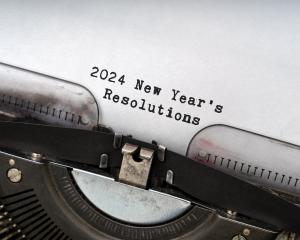

Recently, I have rediscovered the joys of listening to a good audiobook as I traipse across the Oxfordshire countryside.
There’s nothing quite like listening to the deep timbre of Richard Armitage’s voice as he narrates Chekov’s short stories whilst I wander alongside the Cherwell, watching swans glide across the river under the winter sun.
But I have encountered considerable resistance from friends and acquaintances whenever I mention the latest book I have read. Listening to an audiobook, in their opinion, is "cheating". If they happen to deduce that I used Audible to consume the literary text in question, they tell me that it "doesn’t count" and that I’m "not actually reading".
First, I take umbrage at the use of the word "cheating", which implies a certain deviancy as well as an unfair advantage. Reading, be it through the perusal of the written word or the joy of listening to someone read aloud, is not, and should not be considered a form of work. There is no cheating here.
I do not deny that listening to an audiobook and reading a printed book activate different brain pathways; the former stimulates the network involved in auditory processing, while the latter relies on the network devoted to visual processing. Any neurologist or psychologist can tell you that. But, as I insist to my sceptical friends, the same information enters my brain, even if, to put it bluntly, it is transmitted via my ears rather than my eyes. Most psycholinguists would agree with me: the psychological and neurobiological machinery involved in consuming, dissecting, and appreciating a narrative is the same, regardless of the method of transmission.
Many studies have shown that comprehension through reading and listening are correlated. In 2016, Dr Beth Rogowsky of Bloomsburg University conducted a study wherein adult volunteers were assigned to three groups. The first group listened to excerpts of Laura Hillenbrand’s Unbroken, while the second read the same excerpts from an e-reader. The final group read and listened to the excerpts simultaneously. The volunteers were then subject to a comprehension test. Dr Rogowsky and her team discovered no significant differences in the scores across the three groups.
Despite today’s bias towards the written word, the spoken word echoes throughout the annals of history. The oral tradition of storytelling is an important aspect of many cultures and predates the written word by thousands of years. Reading, as Dr Abigail Williams of Oxford University puts it, was a "spectator sport" in the 18th century. From love poetry to sermons to humorous books and scientific tracts, reading aloud was a social activity, a form of emotional catharsis, theatre, and self-improvement. A lot of literature, after all, was written for the express purpose of being read aloud. Listeners can derive a great detail of information from a speaker’s infections or intonations. The speaker’s pacing, pitch, and rhythm of speech add a wonderful extra dimension to the written word.
And then there’s the question of accessibility. In response to my friends’ testy accusations of "cheating" whenever I mention reading through listening to audiobooks, I ask whether they would accuse a blind person who uses Braille of not being able to read. Due to my ME/CFS, I have problems with visual processing. My eyes glaze over, and I read and reread the same sentence over and over again. But when listening to the spoken word, my mind wanders less and I find myself picking up on far more of the text. Audiobooks are also fantastic for the visually impaired, dyslexic folk, and others who have issues with visual processing.
Growing up under the watchful gaze of my Calvinist father who frequently repeated the mantra "if any would not work, neither should he eat", I have internalised the Protestant work ethic to the extent that I struggle to sit still and read, feeling as if I’m not being productive enough. To borrow another one of my father’s beloved phrases, I can "kill two birds with one stone" by listening to an audiobook whilst painting or running errands. There’s something magical about being transported to a new time or planet whilst scrubbing saucepans or vacuuming the house.
There are of course a number of downsides to listening to an audiobook. It’s harder to go back and reread sections. However, learning to skip and rewind on Audible (or any other audiobook app) comes easily enough, as the app’s interface is simple and accessible.
And I must admit that nothing beats the warmth and weight of an actual book in one’s hands. I have an extraordinary fondness for the material qualities of reading; the sweet smell of ancient pages, the scribbles and notes left by past readers, or the joy of wandering around a secondhand bookshop, knowing that any number of literary treasures are at one’s fingertips.
I confess — I am one of those readers who may be accused of maiming and desecrating books. I fold the page corners to remember my place, I gleefully underline my favourite sections, and my liberal application of post-it notes on certain pages transforms whatever book I’m reading into something more resembling a gaudy Grayson Perry monstrosity than an actual book. At least my love of audiobooks prevents further desecration of books. I have taken to keeping a notebook with me at all times so I can jot down passages and phrases that capture me.
So, is listening to an audiobook a form of reading? In my humble opinion, absolutely. I am not arguing for the supremacy of audiobooks over the written text. I am merely proposing that they be afforded the same respect. Those who still insist that listening to a book being read aloud "doesn’t count" as reading need to acknowledge that the definition of reading is changing with the times. If naysayers still insist on quibbling over semantics, perhaps we should create a new word that encompasses all forms of literature consumption. In the meantime, I’ll pop my noise-cancelling headphones on, scroll through my digital library, and find a new literary treasure to listen to.
- Jean Balchin, a former English student at the University of Otago, is studying at Oxford University after being awarded a Rhodes Scholarship.
Comments
I have nothing against audio books, they can be entertaining and very convenient when travelling. But to claim listening to one is 'reading', no, not really. You can listen to an audio book and take it in without being able to read but if you cannot read then a book isn't much good.












